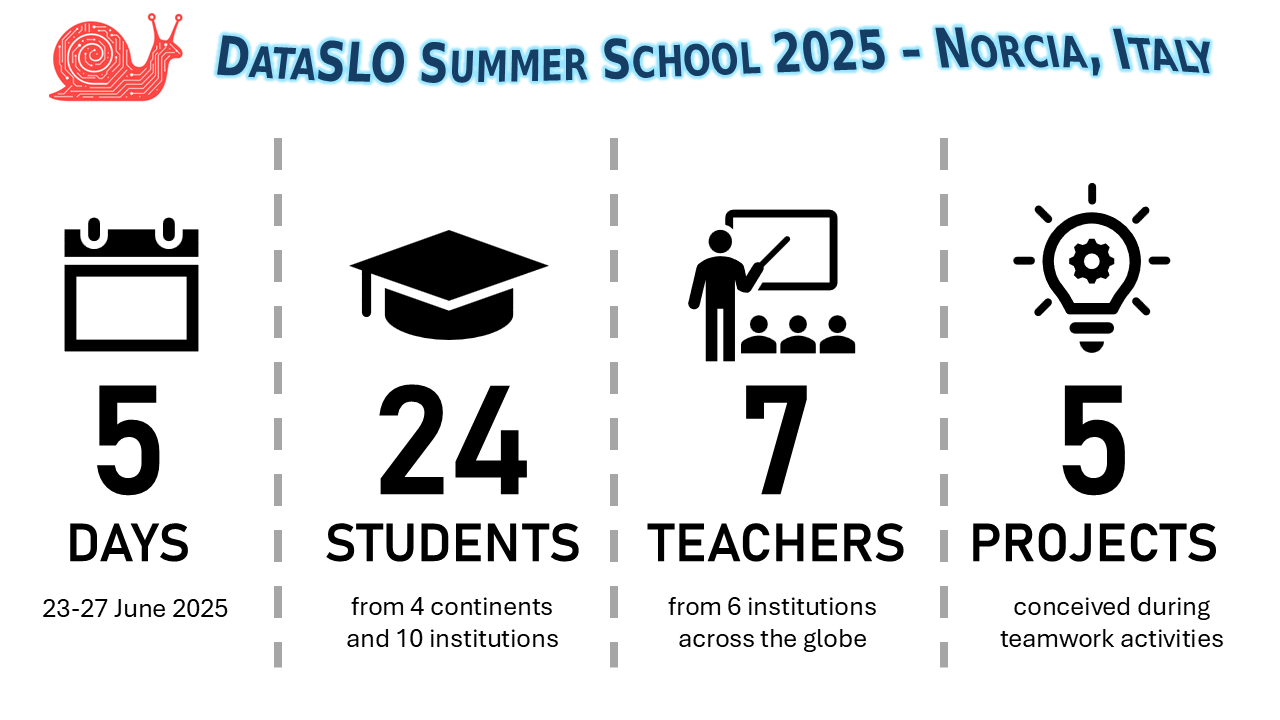The Summer School DataSLO will explore key topics related to the core methodologies that drive Data Science, Machine Learning and Computational Optimization – the three foundational pillars of modern Artificial Intelligence.
The program will include lectures led by internationally recognized researchers, providing a balanced mix of theoretical insights and practical applications.
A roundtable discussion open to the audience will also take place on the final day.
Beyond the technical program, the Summer School will be an opportunity for: networking with the lecturers and other students, improving general research work skills, and enjoying a nice stay in Norcia!
- Place: on site - Norcia (Perugia)
- Date: from June 23rd (Monday) until June 27th (Friday) 2025
- Lesson timetable: 9:00 – 12.00 - 15:00-18.00
- Duration: 35 hours
- Participants: 25 maximum
- Cost: free registration

